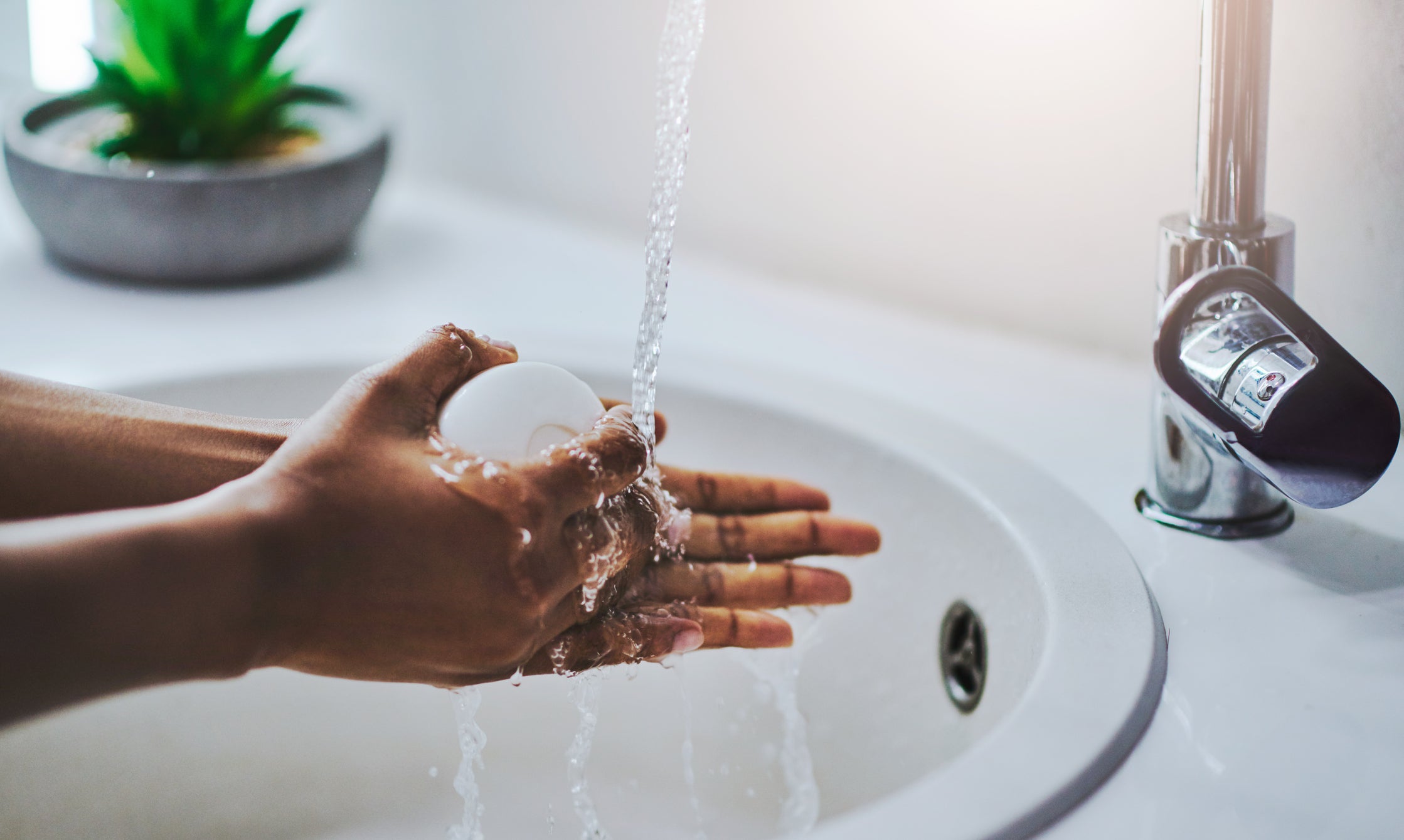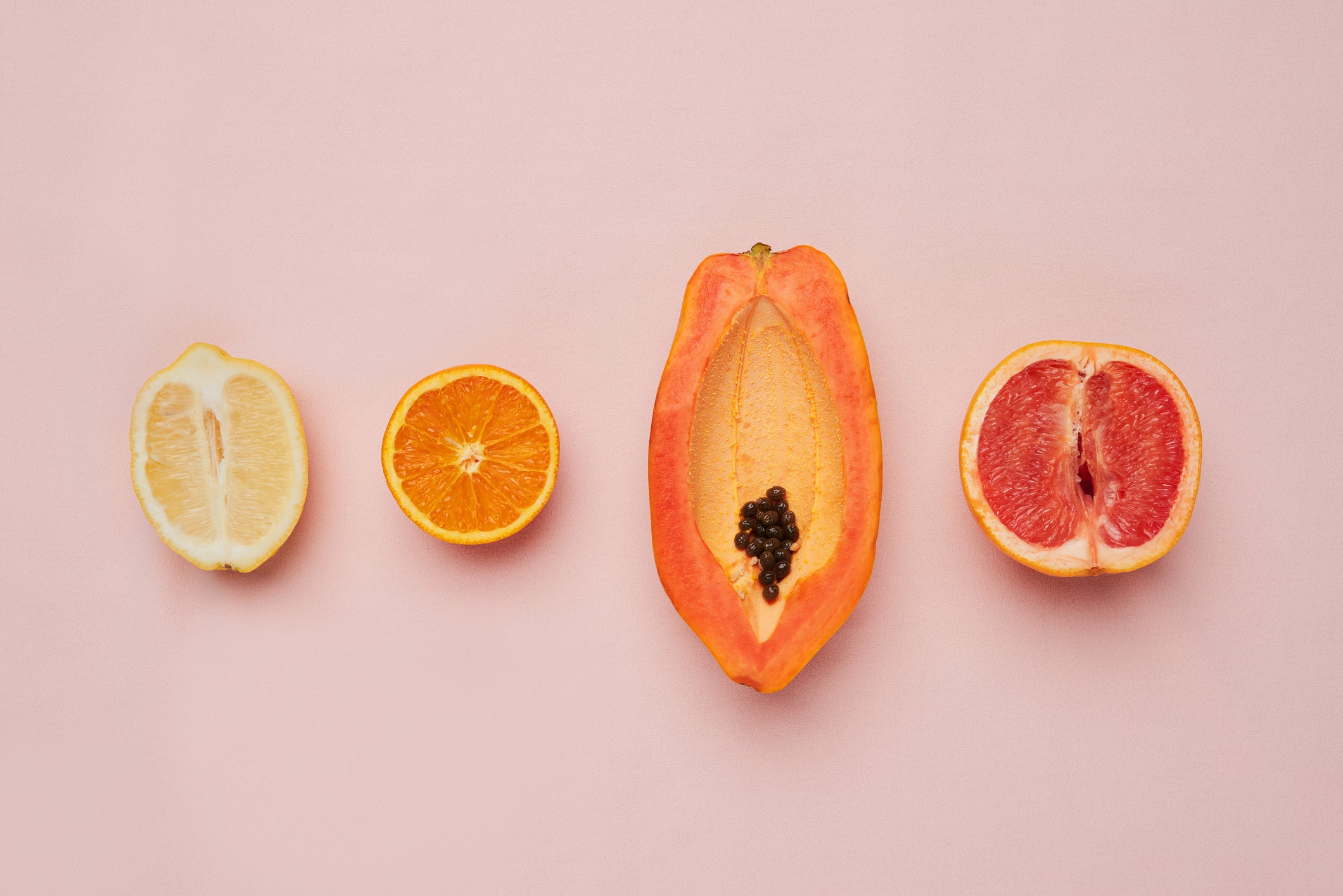The Independent's journalism is supported by our readers. When you purchase through links on our site, we may earn commission.
How to wash your vulva correctly: Goodbye wipes, ‘feminine’ soaps and douches
Making women feel like they need to invest in making their vulva look/smell/taste more appealing is big business, but it’s also problematic and – perhaps more importantly – needless.

Your support helps us to tell the story
From reproductive rights to climate change to Big Tech, The Independent is on the ground when the story is developing. Whether it's investigating the financials of Elon Musk's pro-Trump PAC or producing our latest documentary, 'The A Word', which shines a light on the American women fighting for reproductive rights, we know how important it is to parse out the facts from the messaging.
At such a critical moment in US history, we need reporters on the ground. Your donation allows us to keep sending journalists to speak to both sides of the story.
The Independent is trusted by Americans across the entire political spectrum. And unlike many other quality news outlets, we choose not to lock Americans out of our reporting and analysis with paywalls. We believe quality journalism should be available to everyone, paid for by those who can afford it.
Your support makes all the difference.Almost every part of a woman’s anatomy has become fair game when it comes to body-shaming, but there's one area that gets more attention that most: our genitals.
You don’t, for example, have special soap made to wash arms, or toes, or necks. As far as we know, people are not going out of their way to sell us probiotics to make our feet taste better, or repackaging wet wipes into being specifically to keep your knees fresh.
The object of these “innovative” products is, of course, never the male genitals either. It is always the female ones: the vulva, comprising the clitoral hood and outer and inner labia (although marketing wizards seem hell-bent on continuing to refer to it as the “vagina”, which is actually the inner canal).
“There is nothing 'unfresh' about the vulva or vagina,” obstetrician and gynaecologist Dr Jen Gunter, author of The Vagina Bible, tells The Independent.
“Why does no one worry about scrotal freshness or rectal freshness? Women do not benefit from untested products that are not supported by basic science and rely on destructive, patriarchal messaging.”
Making women feel like they need to invest in making their vulva look/smell/taste more appealing is big business, but it’s also problematic and – perhaps more importantly – needless.
“Feminine hygiene washes and sprays use destructive messaging that the way women are normally is problematic when it is not,” adds Gunter.

In fact, she says that using them may damage your lactobacilli (a “good bacteria” that lives in our urinary system) or protective mucus.
Despite advocates for steaming, douching and moisturising (among other things) the reality is that the female genital area needs no such bells and whistles to remain clean.
According to the NHS, the vagina "is designed to keep itself clean with the help of natural secretions (discharge)".
Dr Suzy Elneil, consultant in urogynaecology at University College Hospital, London, and spokesperson for women’s reproductive and gynaecological health charity Wellbeing of Women, says the most important part of good vaginal health is good overall health, namely a healthy diet and exercise.
Meanwhile, Dr Vanessa Mackay, a consultant obstetrician and gynaecologist and spokesperson for the Royal College of Obstetricians and Gynaecologists (RCOG) tells The Independent: "It’s a myth that the vagina needs extensive cleaning with perfumed soaps or feminine hygiene products.
“It contains good bacteria, which are there to protect it. If these bacteria are disturbed it can lead to infection, such as bacterial vaginosis or thrush, and inflammation.”
From what products to use to what you should avoid doing, here’s everything you need to know about cleaning your vulva.
1) Just water is enough but certain products are ok
In most cases, your vulva is best cleaned with just water – no soap necessary.
If you do want to use a product, the NHS advises using plain, unperfumed soaps or an emollient.
Dr Gunter says that when a product smells nice it will most likely have a fragrance added to it that has been extracted from a plant or fabricated in a lab “which can cause irritation”.
“If nature had intended the vagina to smell like roses or lavender, it would have made the vagina smell like roses or lavender,” adds Professor Ronnie Lamont, spokesperson for the RCOG.

That said, Dr Caroline Overton, a consultant gynaecologist, warns that water alone and some soap products can have a drying effect on the skin for some women.
“Washing with water can causes dry skin and can make the delicate vulva feel more uncomfortable,” she explains.
“[Soaps] can also remove some of the acid mantle, the protective surface layer of fats on the skin,” explains Dr Gunter.
As a result, if you find that unperfumed soaps cause irritation or dryness, Dr Overton suggests women use an aqueous or an Epaderm cream which are safe to use frequently and long-term if needed.
2) Clean the area gently
When cleaning the vulva, it is advisable to clean it gently every day as over-cleaning can aggravate vulval symptoms.
As will all genital-adjacent activities (namely wiping after going to the bathroom, and any sexual contact): you should clean the area front to back to avoid spreading bacteria from the anus to the vagina and ureter, as that can cause infection.
“These bacteria can cause urinary tract and vaginal infections. After washing, women should pat the area dry with a clean towel," says Dr Overton.
Dr Gunter agrees, adding that when it comes to washing the area, it is more of a “splash and go situation.
“Women shouldn't be scrubbing,” she warns. “Remember, this isn't like washing your hands to prevent the spread of food borne illness and influenza.”
When it comes to drying, Overton advises gently dabbing the area with a soft towel or using a hairdryer on a cool setting held “well away from the skin”.
3) Monitor the area for changes
As with all health, it is important to keep tabs on your wellbeing and make note of any signs – be it smells, irritations, or pains – that may suggest a problem.
When it comes to the vulva, the NHS states that it is normal for the vagina to have a scent as its odour can change at different times of the reproductive cycle.
However, if you notice a sudden change in your discharge, this may indicate a vaginal infection which may need further medical attention.

Dr Virginia Beckett, spokesperson for the RCOG, says: “The warning signs of infection include a change in colour or consistency, a sudden bad smell, an unusually large amount of discharge, itching outside the vagina, pain in the pelvis or tummy, or unexpected bleeding from the vagina.”
If a woman has any doubt whether her discharge is normal, you should visit a GP, practice nurse or pharmacist.
4) Avoid using a washcloth
While you may use a washcloth or loofah to clean your face and body, Dr Overton advises foregoing these implements to clean the genital area as they could do more harm than good.
As the vulva is a delicate area, Dr Overton says using products such as a washcloth can “abrade the delicate skin of the vulva”.
In addition, the gynaecologist says that women should ensure that they have “fully washed away the soap after using it as it could dry out or irritate the skin if not fully removed.
“It is ok to wash the whole area including the inside of the labia but women should be careful not to get soap and water inside the vagina.”
5) Don’t use vaginal deodrants or scented wipes
The NHS also advises against scented wipes and deodorants which can disrupt the vagina’s natural bacteria which is what keeps it clean and healthy.
“Vaginal deodorants are trash,” says Dr Gunter. “Think of them as cigarettes for the vagina, but with destructive messaging!
“They are untested, likely harmful, have predatory messaging, and are not needed.”

Any advice saying otherwise, Gunter notes, is a sign of “patriarchal predation”.
“Men manage with toilet paper or a bidet so why can't women?”
6) Avoid vaginal douches
A douche is used to flush water up into the vagina to clear out secretions. Women throughout history and across many cultures have been known to douche with substances such as honey, olive oil, and even wine.
It was once even thought to be a way of preventing infection and a form of contraceptive.
The NHS says that similarly to deodorants and wipes, using a douche can disrupt the normal vaginal bacteria.
"I can't think of any circumstances where douches are helpful, because all they do is wash out everything that's in the vagina, including all the healthy bacteria," explains Professor Lamont.
There is also no evidence that douching protects against STIs or vaginal infections, and it may even increase the risk, states the NHS.
Join our commenting forum
Join thought-provoking conversations, follow other Independent readers and see their replies
Comments